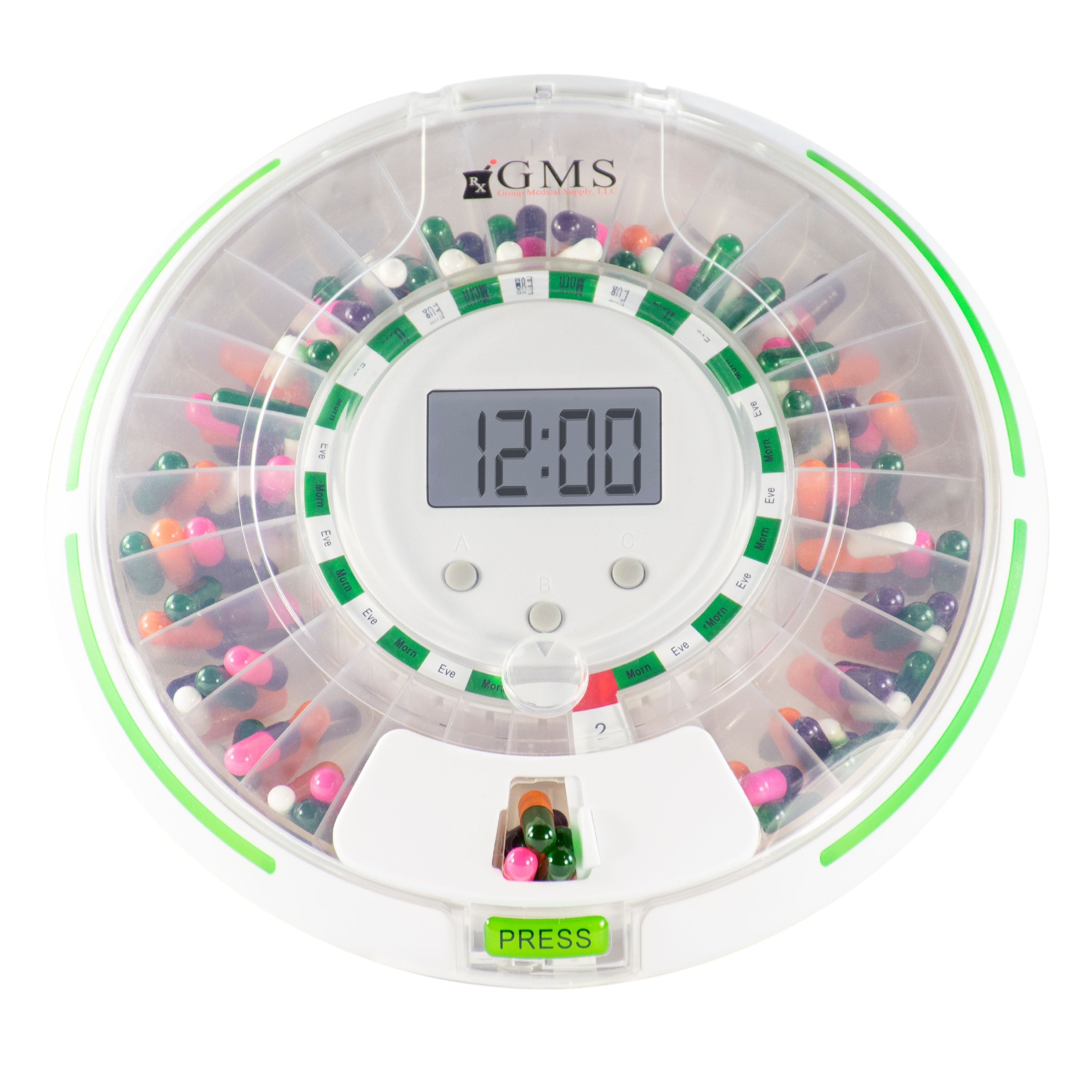

ALARM PILL REMINDER HOW TO
How to carry or where to keep their medication (multiple answer allowed)ĭivided into dosage groups using so-called “pill organizers” (cutting heat-sealed sheets of pills into the amount for a single dose 1) (► Figure 3A)ĭivided into individual medication groups using some kinds of containers (► Figure 3B) The number of their medications that they could remember correctlyįorget to take their medication by self-reportsįorget to take their medication or take their medication more than two hours behind the schedule more than once a weekįrequency of taking their medications outside more than once a week (► Figure 2) They gave informed consent to participate in the interview. Patients who were under 20 years of age were excluded. The hospital is designated as an advanced treatment hospital.


We interviewed consecutive patients who visited two departments of the hospital during office hours in the survey periods. Those interviewed were patients who visited the Department of Cardiovascular Medicine and the Department of Diabetes Metabolic Diseases at the University of Tokyo Hospital from April to June 2010. We used semi-structured interview to clarify the means referring to the previous medication management instruments. We investigated their medication regimens, the number of their medications that they could remember correctly, the frequency of forgetting to take medication, and the means by which they carried or stored their medication in daily life (► Table 2, ► Table 3). Though all are effective to some degree, the authors believe that there is currently no overall, feasible, validated solution for patients to carry their medication history with them, and to receive reminders for taking their medication anywhere.ģ.1 Interviews on how patients can manage their own medicationīefore designing a system, we interviewed outpatients to determine the current state of medication self-management. Their features are shown in ► Table 1 for comparison.
ALARM PILL REMINDER SOFTWARE
Not only mHealth systems, but also a number of other types of self-management tools for medication have been published, i.e., reminder packaging, electronic medication monitors, and smartphone software for medication management. Recent studies have shown that reminder-based interventions using a short message service from mobile phones improved medication adherence. Consequently, helping patients remember to take their medication is a simple and effective way to improve adherence.Īs information and communication technology (ICT) develops, a system using mobile phones to support medication-taking will become increasingly necessary as a part of the mHealth (mobile health) system, because mobile phones are easy for patients to carry even in the event of an emergency or a disaster. Recent studies have suggested that prospective memory, which describes one’s ability to remember to do something at a later time, is an important component in medication adherence. The rate of ‘simply forgot’ was 66% in HIV/AIDS clinical trials and 30% in other clinical trials. The most common patient-related factor resulting in non-adherence include ‘simply forgot’, although medication adherence is a multidimensional phenomenon. Nevertheless, the above-described problems have defied a solution for a long time. Patient adherence to medication is clinically crucial in reducing mortality of serious disease and total health care costs. The rate of medication adherence, defined as “the extent to which the patient follows medical instructions”, has been reported to be approximately 50–80%. Outpatients with chronic diseases, particularly those who have to manage more than one medication or take medication more than once a day, may not take their medications properly. Most patients do not remember their entire medication regimen and they also occasionally forget to take their medication.


 0 kommentar(er)
0 kommentar(er)
